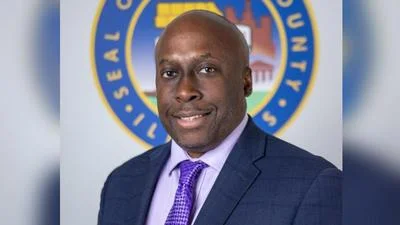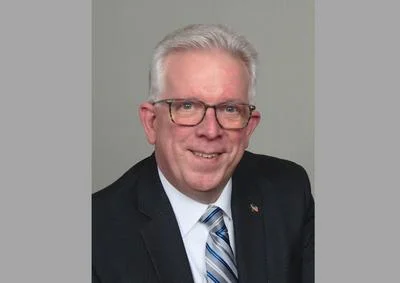Martin J. Moylan, Illinois State Representative from the 55th District | https://www.facebook.com/martymoylan
Martin J. Moylan, Illinois State Representative from the 55th District | https://www.facebook.com/martymoylan
According to the Illinois General Assembly site, the legislature summarized the bill's official text as follows: "Amends the Illinois Income Tax Act. Creates an income tax credit for taxpayers who employ qualified employees. Provides that the term "qualified employee" means an individual who (i) is employed by the taxpayer as an engineer and (ii) graduated from an engineering program at an accredited institution of higher learning with a Bachelor's degree or higher within the 5 years immediately preceding the taxable year. Provides that the credit shall be equal to (i) 10% of the compensation paid by the taxpayer during the taxable year to qualified employees who graduated from an engineering program at an accredited institution of higher learning in Illinois or (ii) 5% of the compensation paid by the taxpayer during the taxable year to qualified employees who graduated from an engineering program an accredited institution of higher learning not located in Illinois. Effective immediately."
The following is our breakdown, based on the actual bill text, and may include interpretation to clarify its provisions.
In essence, this bill amends the Illinois Income Tax Act to establish an income tax credit for taxpayers employing qualified individuals as engineers, with the credit applicable from tax years ending on or after Dec. 31, 2025. It defines a "qualified employee" as one who is employed as an engineer by the taxpayer and who graduated within the last five years with at least a bachelor's degree from an engineering program at an accredited institution. The tax credit is 10% of the compensation paid to those who graduated from an Illinois institution and 5% for those who graduated from out-of-state institutions. The credit cannot reduce a taxpayer's liability below zero, but any excess credit can be carried forward for up to five years until fully utilized. The bill takes effect immediately upon becoming law.
Martin J. Moylan has proposed one other bill since the beginning of the 104th session.
Martin J. Moylan is currently serving in the Illinois State House, representing the state's 55th House District. He replaced previous state representative Rosemary Mulligan in 2013.
Bills in Illinois follow a multi-step legislative process, beginning with introduction in either the House or Senate, followed by committee review, floor debates, and votes in both chambers before reaching the governor for approval or veto. The General Assembly operates on a biennial schedule, and while typically thousands of bills are introduced each session, only a fraction successfully pass through the process to become law.
You can read more about bills and other measures here.
| Bill Number | Date Introduced | Short Description |
|---|---|---|
| HB1803 | 01/27/2025 | Amends the Illinois Income Tax Act. Creates an income tax credit for taxpayers who employ qualified employees. Provides that the term "qualified employee" means an individual who (i) is employed by the taxpayer as an engineer and (ii) graduated from an engineering program at an accredited institution of higher learning with a Bachelor's degree or higher within the 5 years immediately preceding the taxable year. Provides that the credit shall be equal to (i) 10% of the compensation paid by the taxpayer during the taxable year to qualified employees who graduated from an engineering program at an accredited institution of higher learning in Illinois or (ii) 5% of the compensation paid by the taxpayer during the taxable year to qualified employees who graduated from an engineering program an accredited institution of higher learning not located in Illinois. Effective immediately. |
| HB1713 | 01/24/2025 | Amends the Chicago School District Article of the School Code. Provides that any appointments to the Chicago Board of Education made by the Mayor of the City of Chicago shall be made with the advice and consent of the Chicago City Council. Effective immediately. |






 Alerts Sign-up
Alerts Sign-up